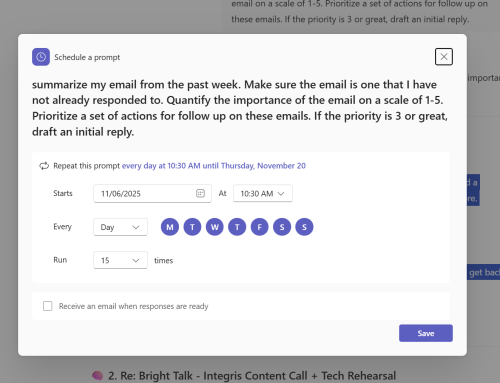In our previous blog post, we discussed the impact that email cyber security threats can have on law firms and how they continue to be a significant risk. In this follow-up post, we will explore what you can do to prevent an email attack from damaging your business’ reputation.
The Legal sector depends heavily on reputation for securing and retaining new business. It’s terrifying to think that can be destroyed simply by someone opening or interacting with the wrong emails.
It is important to note that you can never prevent totally an email attack from happening but you can significantly reduce the risk to your firm, and its reputation, by following these 5 steps:

1 Have a strategic technology plan
The goalposts for appropriate cyber security measures are changing all the time as cyber criminals, and the technology they use, becomes more advanced. Recent strides in Artificial Intelligence (AI) will only accelerate this trend. If you don’t have a strategic plan for your technology and cyber security, you will fall behind in this arms race.
Ensure you maintain at least a twelve-month budgeted technology plan that is compiled with the input of someone with appropriate expertise and signed off by the board. You should review your plan regularly, to check that it remains appropriate for the threat level and your firm, and do not delay implementing any initiatives in it.
2 Conduct regular security audits
We have highlighted in a previous blog article the importance of reviewing your IT systems on a regular basis. The is especially important when it comes to cyber security, with the goal posts moving on a regular basis.
Only by auditing your cyber security regularly, will you identify gaps that need to be addressed or improvements you need to make, which can be added to your strategic plan. You will also be able to confirm that the controls you do have are working properly.
You should also carry out regular security risk assessments – especially should any aspects of your business, services you provide or business partners change. By carrying out risk assessments you will be able to understand where you are vulnerable and where you can invest time and effort to reduce it.
3 Provide regular training to staff
Your people are the weakest link in your cyber defences. In fact, over 90% of cyber attacks involve a person and the vast majority of them an email too. Lawyers and support staff are always busy, meaning malicious emails can be missed. Furthermore, some cyber criminals will deliberately target your staff with sophisticated campaigns to trick them into disclosing confidential or financial information.
Training your staff will help them identify malicious emails and scams, and also allow them to provide appropriate advice to your clients on spotting fraudulent activity. It’s crucial to train staff both when they join your firm, but also at regular intervals, to reinforce the learning and keep it front of their minds. We recommend doing this monthly.
4 Develop a culture of cyber security
This is probably the trickiest of these recommendations to achieve – but easily the most effective. If, as a senior partner of a firm, you are seen to be dictating the rules on cyber security in an authoritarian way, your people will see it as an obstacle to productivity and could – in a worst case scenario – develop a negative attitude towards it. A culture of cyber security needs to be nurtured.
By empowering your staff to work collectively to keep your firm secure, it will both reduce the load on the partners and create more positive attitudes towards completing cyber-related CPD. Most importantly, you will have a whole team of people looking for and trying to reduce risks and ultimately, a much safer business.
5 Have a plan in place for when a breach occurs
Even with the best security measures in place, and a well-trained and highly cyber-aware workforce, cyber breaches and especially those from emails, will still happen. With this in mind, you should accept that it is not if you have a breach, but when. Firms that have this approach and prepare accordingly are those that suffer the least damage when it happens.
You should ensure you have a well-documented and rehearsed cyber security incident response plan that your staff can access wherever they are working.
If you don’t have these measures in place to protect against an email attack, or simply don’t know where to get started, then speak to our team on 0330 124 3599 or book a free cyber security audit to better understand your risk.







